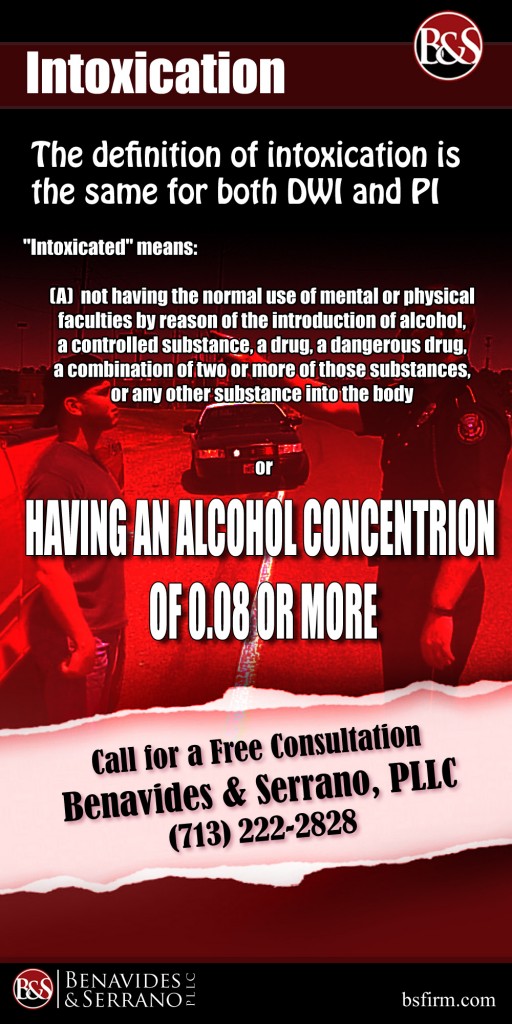Understanding Alcohol Intoxication
Intoxication is defined the same in either a Driving While Intoxicated (DWI) or Public Intoxication (PI) case in Texas. I had a very interesting situation that came up recently. I had a client who had been arrested for DWI. He was leaving the bar late at night with some friends and while driving home late at night one of his friends got sick. The friend had a little too much to drink and needed to throw up. My client who was driving, pulled over on the highway to let his friend handle his business. Within a couple of minutes an officer pulled in behind them to see if they needed any help. When they smelled alcohol and saw some guy puking they decided to conduct a DWI investigation on my client.
They went through the normal standard field sobriety tests (Horizontal Gaze Nystagmus, One Leg Stand, Walk and Turn) and determined that my client was intoxicated. He was arrested for DWI and taken to the station. At the station they asked him to submit to a breath test to which my client agreed. He took the test and blew a .04, well below the legal limit in Texas.
Now if you have any common sense, this just doesn’t seem right. At the end of the day the definition of intoxication is the same for both DWI and PI. What happened next was interesting. Officers usually get people to take breath tests by saying, “If you blow under the legal limit you are free to go”. Well in this case I think the officers were either embarrassed or upset, so they decided to charge him with Public Intoxication.
Per the Texas Penal Code, Intoxicated means:
(A) not having the normal use of mental or physical faculties by reason of the introduction of alcohol, a controlled substance, a drug, a dangerous drug, a combination of two or more of those substances, or any other substance into the body; or
(B) having an alcohol concentration of 0.08 or more.

So you are intoxicated in Texas if you lose your physical faculties, lose your mental faculties, or if your alcohol concentration is .08 or more. My client was not intoxicated by law in Texas, but somehow the officers thought it was ok to charge him with a “small” misdemeanor because it wasn’t that “serious”.
Lucky the prosecutor understood the law and dismissed this case after the first hearing. It’s sad that my client had to waste time and money, but justice prevailed.
- Truth Between You and Your Lawyer - July 28, 2016
- When to Turn Down a Dismissal - July 27, 2016
- Pretrial Intervention Program for Retail Theft - July 26, 2016
